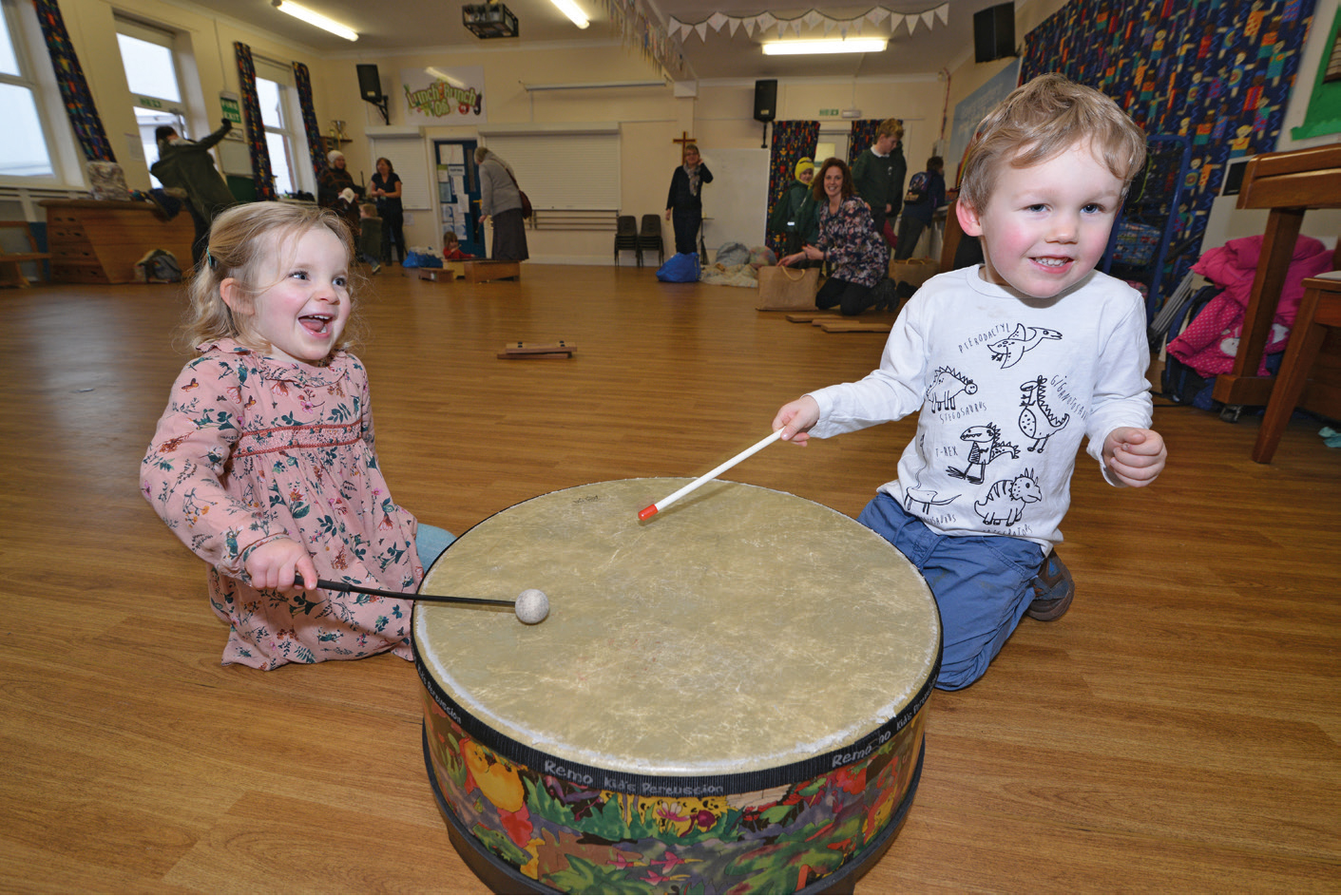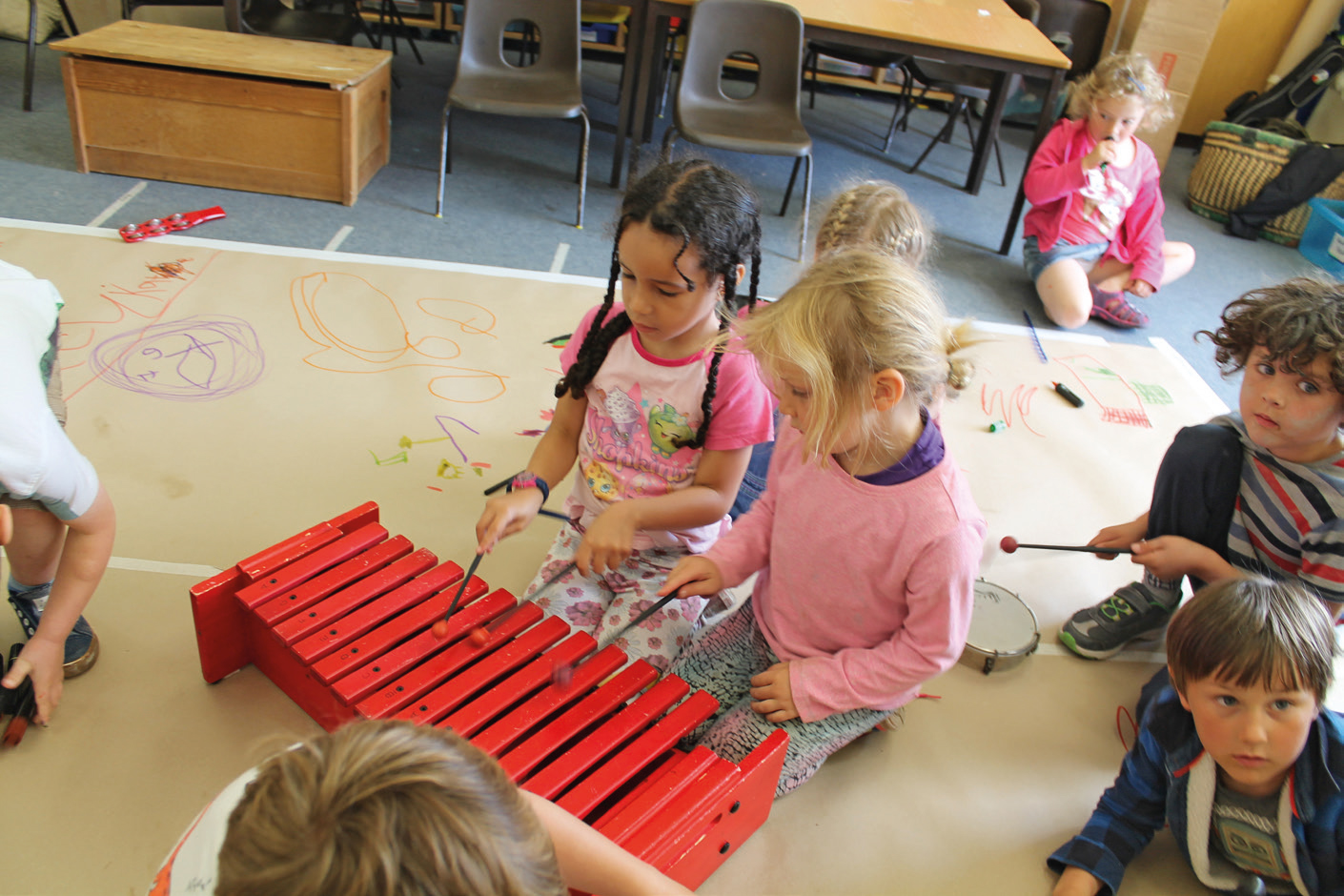
The advent of the Certificate for Music Educators (CME) came with the publication of England's National Plan for Music Education – the time period of which, incidentally, comes to an end in 2020. The plan mandated the creation of a ‘music educator qualification … ensuring the wider music workforce is better skilled, and properly recognised for their role in and out of school’.
Two exam boards, ABRSM and Trinity College of Music, are now awarding bodies for the CME, which is a Level 4 qualification, putting it on a par with qualifications including certificates of higher education, higher national certificates. For comparison, level 3 qualifications include A-levels, advanced apprenticeships and music Grades 6–8, and Level 5 qualifications include foundation degrees, higher national diplomas, and diplomas of higher education.
That initial aim of ‘ensuring’ that the music education workforce is skilled might not have sounded ambitious at the time, but in practise, it certainly is. Music teachers work in so many different settings, in so many different ways – and at a time when music education hubs have also been adopted and the terms and conditions under which teachers are employed have become increasingly varied, a more realistic wording might have been to ‘aim’ for the new qualification to help develop England's music teachers.
Nevertheless, both ABRSM and Trinity moved quickly to establish qualifications, and they are now starting to develop significantly. There is a great diversity to the work that is being done, both by Trinity and ABRSM. But for Trinity, how does the CME fit into the more traditional role of providing grade examinations?
Teaching and learning support
‘About 10 years ago we started to think about how assessment could and should be a valuable part of broader teaching and learning – and what our responsibilities as an awarding organisation are,’ says Francesca Christmas, Trinity's Head of Academic Governance for Music. ‘So we could send our graded exams out into the wild, but what did we know about the teachers who teach towards them, and the learners who take them, and how could we be supporting that whole teaching and learning process more effectively?’
Trinity engaged Gary Spruce, whose interests and professional experience had been in teacher education, to work on a Key Stage 2 teacher support programme, aimed at supporting primary teachers and instrumental teachers in whole-class teaching – at a time when, says Christmas, ‘that was the thing that needed support and funding. Those three or four years of working on that programme together gave us a lot of insight into the ways that teachers are best supported to do music teaching really well, and from that we've been using those experiences and resources to develop our teacher development and teacher education portfolio at Trinity.
‘So rather than just support teachers in how to help their students do well in scales, how can we look at the broader context of what teachers do? The other thing we have been offering for a long time is teaching diplomas, which a lot of UK instrumental teachers have – and we've been thinking about the role of the diploma in a 21st-century music education context. Something that we're working on is a broader portfolio of more flexible teaching qualifications that would support teachers in different ways.’
Tailored to teaching
‘Instrumental teaching can be considered to be a fairly narrow and “traditional” practice,’ says Christmas, ‘in which young people learn to do certain technical and musical things which you then put together and get your graded music exam. Instrumental teaching could be viewed in that way, but we believe – and most people would agree, I think – that the time that a teacher spends with a learner is actually far more varied, musical and creative than that.
‘So the idea behind our teaching qualifications is that there are a number of beliefs about high-quality music-making that fit into the requirements of one of our qualifications, and a teacher can achieve those in a number of different ways – suited to their context, whether they're a piano teacher in Delhi or a whole-class teacher in Bristol.


‘There are a number of ways in which you can achieve the same high-quality teaching and learning. So the portfolio that we're devising is flexible and can be connected over time to professional development and your own teaching practice, and at the end of it you'll have been required to demonstrate a number of qualification levels appropriate to the sort of teacher you are – and it will be certificated as a qualification. We offer all these opportunities for teachers to think about their professional development, and we're an awarding body, so why not offer them a way to get a qualification when they engage with it?’
Diversity and flexibility
The diversity of music teachers’ work means that a flexible qualification is required, says Spruce: ‘I think we have to recognise that there are lots of other teachers working as teachers as part of a wider portfolio of work; or teachers who have a PGCE qualification but perhaps not in music, but are becoming responsible for music; musicians working in the community; orchestral musicians working in schools; and those who simply, for whatever reason, haven't got a PGCE.
‘There's a need for a structured framework which supports their professional development and recognises the professional development that they have already had – what they can already actually do. So it's a two-sided coin. What the CME does is to provide a well-principled framework within which lots of approaches to professional development can fit, and which meet a whole range of different needs.’
The process of individual institutions applying to become validated centres means that each centre also identifies the kinds of teachers with whom they generally work; it then works with the exam board to tailor the qualification appropriately.
‘So, for example, MEHEM (Music Education Hubs East Midlands) use the CME as a way of framing their CPD, but also as part of their induction process,’ says Spruce. ‘So if they've got new teachers coming in, they do the CME and have to be successful to pass the induction process. So that's close to the original aim, in a sense, around music hubs in the National Plan for Music Education.
‘But, to take an entirely different example, the Centre for Research in Early Childhood in Birmingham runs a CME which works with teachers already in educational settings, most of whom already have a PGCE: here it provides structured professional development and a qualification for working in early years music. That's very different, but the framework is sufficiently flexible to allow that.’
Future plans
Trinity's CME is continuing to develop, including a new London partnership between Sound Connections and Morley College aimed at London music education hubs; a route in Bristol which specialises in working with people with special educational needs and disabilities; and a wide range of music organisations who will in the next year start to offer the qualification to teachers, as part of ‘Fund C’ funding from Youth Music.
Youth Music's support has been important, says Christmas, and will allow Trinity and the other organisations ‘to share expertise and start to build a community to support organisations which often don't have their own facilities or resources for teacher training’.
Things don't always move quickly in music education, and it is a difficult job to match the ambitions of politicians – now long gone, in the case of the National Plan for Music Education – with action on the ground. There will be more to come from the CME, as Trinity's plans suggest – but its impact is already being increasingly widely felt.




